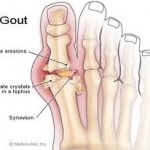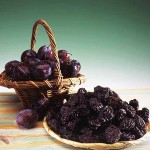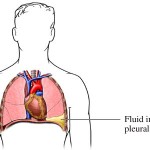Quercetin belongs to a group of plant pigments called flavonoids that give many fruits, flowers, and vegetables their color.
Flavonoids, such as quercetin, are antioxidants — they scavenge damaging particles in the body known as free radicals, which damage cell membranes, tamper with DNA, and even cause cell death. Antioxidants can neutralize free radicals and may reduce or even help prevent some of the damage they cause. They also help keep LDL (“bad”) cholesterol from being damaged, which scientists think may contribute to heart disease. In test tubes, quercetin has strong antioxidant properties, but researchers aren’t sure whether taking quercetin (and many other antioxidants) has the same effects inside the body.
Quercetin acts like an antihistamine and an anti-inflammatory, and may help protect against heart disease and cancer. Quercetin can also help stabilize the cells that release histamine in the body and thereby have an anti-inflammatory effect.
Quercetin Lowers Cholesterol, Fights Atherosclerosis
Quercetin is naturally abundant in plant foods and as a result is highly bioavailable. Nonetheless, most people do not obtain sufficient quercetin levels through their daily diets. This is unfortunate because large-scale epidemiological studies show that sustained high intake of quercetin and related flavonoids provides substantial protection against cardiovascular disease.
In a study of 805 men aged 65-84 years, those with the highest quercetin and other flavonoid intake were 68% less likely to die from coronary heart disease than those with the lowest intake. A similar study found a reduction in death rates from all causes of 31% for women and 24% for men, with a 46% reduction in coronary death rates for women and a 22% reduction for men in those with the highest intakes.
This dramatic cardiovascular protection is the result of a concerted synergy between several basic quercetin mechanisms, including its ability to lower cholesterol and reduce dangerous accumulations of abdominal and liver fat.
In one study on quercetin’s impact on cholesterol levels, a group of otherwise healthy male smokers took 100 mg/day of quercetin or a placebo for 10 weeks, with blood tests done at baseline and at the end of the study. The supplemented group, but not the placebo group, had significant reductions in total and LDL cholesterol, and an increase in HDL cholesterol. They also had a significant reduction in blood sugar, another cardiovascular risk factor.
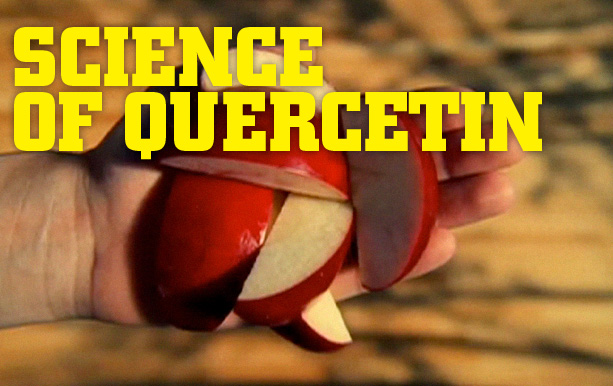 A larger study of non-smokers showed similar results, with an 18% reduction in total cholesterol, a 27% reduction in LDL, and an important 33% increase in beneficial HDL cholesterol.
A larger study of non-smokers showed similar results, with an 18% reduction in total cholesterol, a 27% reduction in LDL, and an important 33% increase in beneficial HDL cholesterol.
Animal and human studies also suggest that quercetin supplementation can reduce dangerous accumulations of abdominal and liver fat, the result of decreased oxidative stress and inflammation.
Lowering cholesterol and reducing body fat are important first steps, but quercetin’s cardiovascular benefits go farther, lowering blood pressure and increasing plasma levels of nitric oxide, thus providing more of the synergy mentioned earlier.
By blocking oxidation of LDL cholesterol, quercetin counteracts a major source of the blood vessel inflammation that precedes atherosclerosis. One human study found a 28% reduction in the rate of LDL oxidation following two weeks of supplementation with quercetin at just 30 mg/day.
Higher doses of quercetin have shown the ability to modestly lower blood pressure. Quercetin supplements of 730 mg/day reduced hypertensive people’s systolic (top number) blood pressure by 7 units (mmHg), and diastolic (bottom number) pressure by 5 units (mmHg). Those with normal blood pressure retained their healthy levels and did not experience a dangerous drop in blood pressure as is often the case with the use of anti-hypertensive medications. These results have been confirmed in other studies, with lower doses in the range of 100 – 200 mg/day.
Quercetin also appears to exert its blood pressure-lowering effects by improving the health of your endothelium, the lining layer of the arteries that controls blood flow and pressure. Supplemental quercetin in hypertensive rats allowed “tight” blood vessels to relax, reducing their blood pressure.
Quercetin supplements of 200 mg/day in healthy men increased blood levels of nitric oxide, a substance produced in endothelial cells that’s required for vessels to dilate and lower blood pressure.28 Heart muscle that is overloaded by excess blood pressure loses its responsiveness to nitric oxide. It becomes overgrown, or hypertrophied and eventually loses its ability to pump blood effectively. This can lead to early death or disability. Quercetin completely blocks pressure overload-induced cardiac hypertrophy in animal models of hypertension which is the result of beneficial changes in gene expression in heart muscle tissue.
Another of quercetin’s cardiovascular benefits is its ability to inhibit platelet aggregation or “stickiness” in platelets. Oxidant stress and inflammation trigger this excessive “stickiness” in platelets and blood vessel walls. Untreated, the result can lead to a stroke or a heart attack following blood clot formation.
Human volunteers taking a highly bioavailable form of quercetin at both 150 and 300 mg/day rapidly (within 30 minutes) inhibited platelet aggregation. This effect proved to be the result of multiple changes in biochemical signaling pathways and gene expression, resulting in a healthier, “non-sticky” condition of the platelets.
Other benefits of quercetin include:
- Quercetin reduces the growth of colon cancer and its predecessors. Colon cancer involves both genetic predisposition and chronic inflammation in the intestinal tract. Quercetin reduces the amount of fat oxidation and inflammation of the intestine in animal studies. That reduces not only the incidence of tumors in lab animals, but also tumor size and the number of tumors per animal.
- Quercetin decreases the number and size of pre-cancerous lesions in the colon. These lesions are called “aberrant crypt foci,” which are one of the danger signs your gastroenterologist looks for during a colonoscopy.
- Quercetin prevents development of liver cancer cells. Your liver is your body’s “toxic waste dump,” receiving and detoxifying the bulk of the poisons it is exposed to every day. As a result, liver cells are at the epicenter of toxin-induced cancer development. Studies show that quercetin ramps up human liver cells’ production of protective proteins and enzyme systems, blocks the cancer replicative cell cycle, and reduces toxin-induced DNA mutations.
- Quercetin interferes with sex hormone receptors on reproductive system cancers. It blocks the androgen receptors used to sustain growth by prostate cancer cells, potentially preventing such cells from forming tumors. In breast cancer cells, on the other hand, quercetin stimulates estrogen receptors, but only the so-called “beta,” or cancer-suppressing receptors, not the “alpha,” or cancer-promoting ones.
- Quercetin Blunts Allergies, Asthma Attacks, and Protects Lungs. Allergic responses can range from the merely irritating to the life-threatening. Triggers can involve sources from food (such as peanuts) or the environment (such as pollen). What many people don’t realize is that allergy-like responses are responsible for most of the symptoms of asthma and even chronic obstructive pulmonary disease (COPD).Quercetin powerfully and favorably modifies the allergic response in potentially life-saving ways.Let’s start with allergies, which are produced by “pre-sensitizing” a person to a particular substance (an allergen). Quercetin blocks the allergic response at several points. It suppresses the actions of immune system cells, reducing the amount of the substance called histamine, that accounts for itchy skin, watery eyes, and (more dangerously) loss of blood pressure during serious allergic reactions. Quercetin also impairs the function of certain cell types that lie at the heart of the allergic and autoimmune processes. Studies show that for skin allergies (contact dermatitis), quercetin is more effective than the standard drug cromolyn at inhibiting inflammatory cytokine release.Food allergies may be particularly responsive to quercetin prevention. Studies show that quercetin blocks intestinal inflammation stimulated by the allergy-related antibodies. That can reduce both local discomfort and dangerous systemic symptoms of food allergies.In one important animal study, quercetin completely blocked the deadly “anaphylactic” response to peanuts in peanut-allergic rats. The animals had much lower histamine levels than did control animals, and none of the airway tightening, blood pressure lowering, or blood vessel leakiness seen in controls exposed to peanuts. This study has powerful implications for future study in humans, since peanut allergy is the leading cause of fatal or life-threatening food allergies.In asthma, smooth muscles in the airway tubes (trachea and bronchi) constrict excessively in response to an allergic stimulus. Most of the cellular mechanisms involved are similar to those seen in allergies. When those smooth muscles constrict, airways narrow, and breathing becomes difficult. The result is the familiar wheezing sound and need to push air out of the lungs that we see in people suffering from asthma.
- Quercetin is also effective against bacterial infections. It decreased the infection rate and inflammatory response to Helicobacter pylori, the cause of many ulcers and eventually cancers of the stomach. Quercetin also reduced inflammatory responses and strengthened host defenses in experimental Salmonella infections, a major cause of death and disability, especially in older adults.
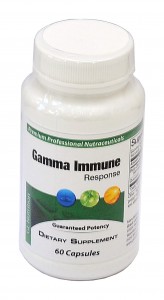 |
Bio available Quercetin formula |
Sources for this article include:
http://www.lef.org/magazine/mag2012/sep2012_Quercetin-Broad-Spectrum-Protection_01.htm
http://umm.edu/health/medical/altmed/supplement/quercetin
